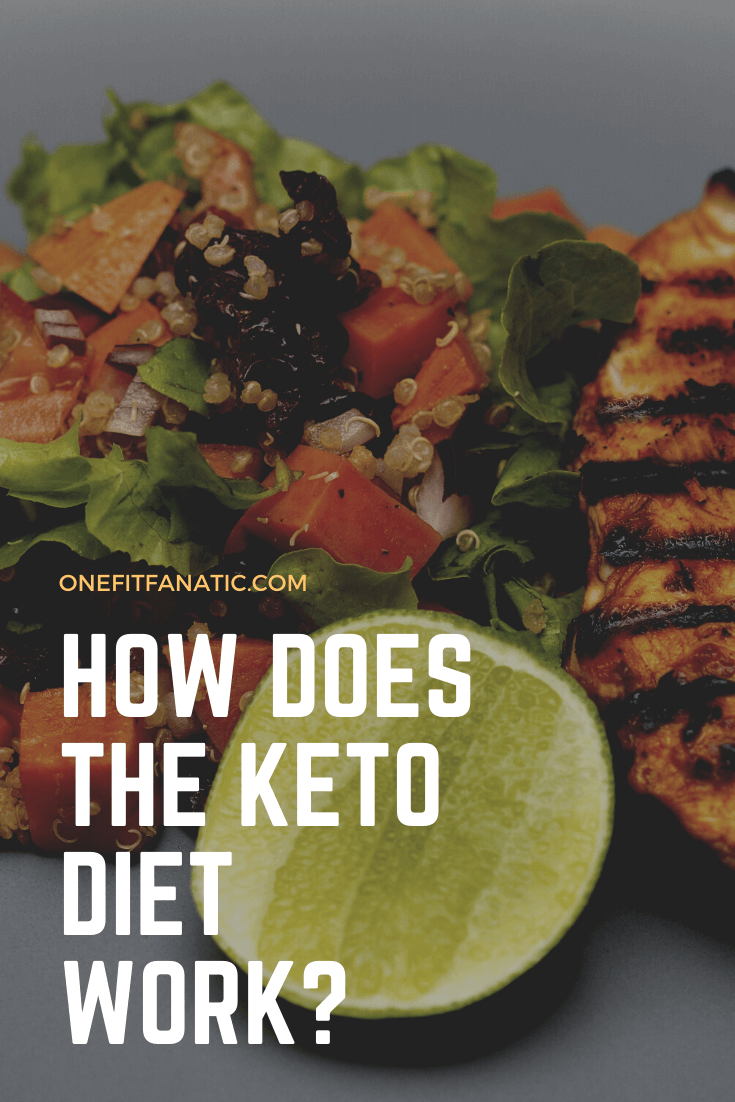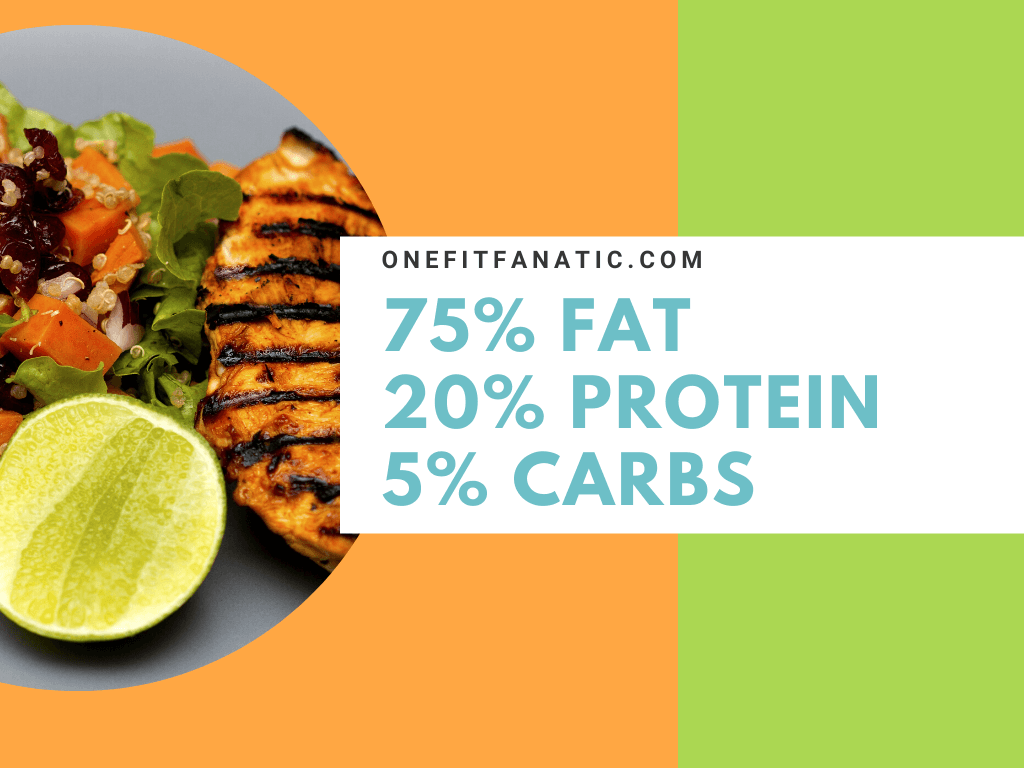How does the Keto Diet work? Does the keto diet work for everyone? Does the keto diet work long term? These are some of the questions I’ve seen a lot from people that wanna start a Keto diet and are confused about what is Keto diet and how it can benefit them.
You will learn a lot of things about the Keto diet and how you can customize a keto diet plan for yourself as well. It is perfect for weight loss to shed the fat and reduce the appetite you have.

How does Keto Diet work?

Keto diet is a low carb, medium protein and high-fat diet plan then offer plenty of health benefits including weight loss.
Many diet plans have come up with ranging targets. Some focus on reducing calorie intake, others put emphasis on burning fat while others focus on the general health of the body.
Ketosis, on the other hand, focuses on fat reduction.
This can lead to many health benefits, can prevent cancer, will reduce the risk of getting cardiovascular infections that can prevent brain diseases and other lifestyle infections that can easily target human beings.
Also, it helps in blood flow, thereby increasing blood supply to the brain, increasing the basal and resting metabolic rates. It will also increase creativity and general body function.
Summarily, the keto diet focuses on ways of burning fat in the body while consuming more fat and fewer carbs. The process is usually combined with exercises and fasting sessions to give positive results to the dieters.
It leads to loss of appetite; therefore, you are kind of immune from dropping out of the ketogenic diet because you can now resist the urge to eat before the feeding window.
Types of keto diets
Ketogenic diet comes in varied versions; they include standard, cyclical, targeted, and high-protein.
The standard ketogenic diet (SKD): this type of keto diet involves a high fat (75%), low carb (5%) and moderate protein (20%)
The cyclical ketogenic diet (CKD): the diet has periods whereby high-carb recedes are integrated into the diet. These periods are then followed by at least two days of a high-carb diet.
The targeted ketogenic diet (TKD): the diet is flexible with exercises as it allows one to add more carbs during intense workouts to boost energy production.
High-protein ketogenic diet: the diet is a low carb and high fat, however, the quantity of protein is enhanced. There is 60% fat, 35% protein, and 5% carbohydrates. This kind of keto diet is similar to standard. However, the difference is the quantity of the meal components. The amount of protein is increased at the expense of the fat quantity.
Subsequently, the two almost identical keto diets are by far the most studied and applied among the four types.
Benefits of Keto
Weight loss
It is often advised that to lose weight; one needs to consume fewer fats. However, according to research conducted back in 2015 on obese subjects, it was discovered that those who consumed more fats and low carbs lost more weight compared to the subjects who restricted their consumption of fats in favor of sugars. Also, it was established that the keto diet was 2.2 and 3.0 times more effective than diets recommended for diabetes and low-fat diets, respectively.
Health benefits
Health benefits manifest in a rather wide scope. It involves body fitness, controlling blood sugar level, reducing the risk of getting infections, preventing major body diseases such as cancer, improving brain activity, strengthening the immune system, etc.
- Blood sugar – diabetes is caused by an imbalance in blood sugar levels either by a change in metabolic rates or insulin impairment. Scientists have linked weight directly to diabetes. It, therefore, goes without saying that one way of preventing or controlling diabetes is through weight loss. Research has proven that the keto diet was able to cure 1/3 of the 21 patients with diabetes type 2. They stop completely using diabetes medication which is a significant improvement.
- Cardiovascular conditions – overweight individuals are at a higher risk of developing heart complications than average-weight people. A ketogenic diet helps solve issues to do with weight hence reducing these risk factors by a considerable margin. Therefore, heart failure, high blood pressure, coronary failure, and other scary heart infections will be avoided when you are on a keto diet.
- Cancer – not all types of cancer are treated and managed with the keto diet; however, some are. Such as managing the growth of cancerous cells in the brain.
- Keto has also been found to be effective in managing conditions such as Alzheimer’s disease, epilepsy in children and Parkinson’s disease, acne, polycystic ovary syndrome, etc.
Foods to eat:
- Fish: Fatty fish provides some of the best oils that are perfect for ketosis. Eat tuna, mackerel, trout, and salmon.
- Eggs: Eggs are rich in protein. Omega-3 whole eggs or pastured eggs will be4 ideal
- Cheese: this one has high-fat deposits as well as protein. Unprocessed cheddar, goat mozzarella, or cream cheese will be perfect.
- Avocados: This is a fruit which has very high levels of oils
- Nuts and seeds: almonds, flax, pumpkin chia, and walnuts are ideal for ketosis.
- Meat: white meat is the perfect food for this diet. However, small proportions of red meat can also be used.
- Healthy oils: plenty of oils are needed to make this diet a success; they include olive oil, avocado oil, coconut oil, etc.
- Low-carb veggies: tomatoes, peppers and most green veggies are perfect.
Foods to avoid:
- Sugary foods: include soda, cake, ice cream, fruit juice, etc. they contain high levels of glucose.
- Grains and starch
- Low-fat fruits: avoid most fruits except berries and high-fat fruits like avocado and coconuts.
- Root tubers and veggies: carrots, sweet potatoes, etc. are high-content carb foods that should be avoided.
- Beans and legumes
Side effects and remedies
When you destabilize the body from its former comfort zone, it reacts negatively trying to regain its stability. This stage in keto is known as keto flu. In this period, when adapting, you will experience nausea, reduced exercise performance, digestive discomfort, sleep issues, increased hunger and reduced energy levels.
Use mineral supplements or extra salt in your food to increase mineral ion intake. Also, start with slow exercises before taking on the recommended intense practice schedules to help your body to adjust to the keto diet gradually.
Avoid restricting calorie intake ion to the body. The process requires calories, therefore; you are advised to follow correct eating patterns all the time
Conclusion: How does the keto diet work?
The information in this post is mostly based on the standard ketogenic diet.
With this diet, one needs to feed on a low carb and high-fat meal and do exercises as well as honor intermittent fasting periods to ensure retention into the program.
It is rather challenging to enter and settle into the diet right away, which is why there are measures you can take to help your body ease slowly into the program.
If you want a custom Keto diet made for you, click here.